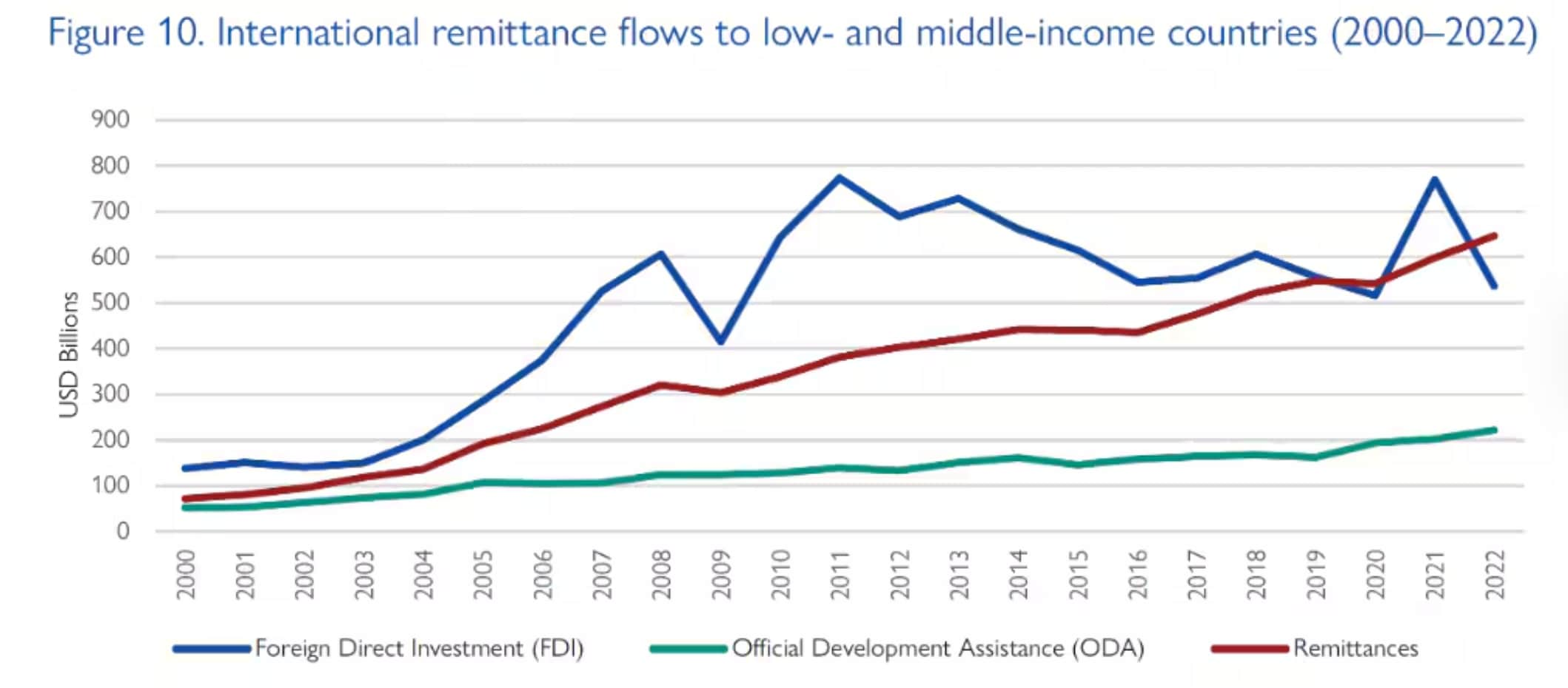Opinion
Why reforms are necessary to protect the UN-led system

Migration could be key to addressing labour shortages, demographic transitions and innovation gaps Image: Naufan Raisudya/Unsplash
- Migration affects every region and sector, with over 300 million migrants contributing significantly to global economies.
- Reforms still treat it mainly as a humanitarian crisis, not a development opportunity.
- UN80 must reposition migration as a strategic global asset, central to economic growth, labour mobility and innovation.
As the world marks the 80th anniversary of the signing of the United Nations Charter, the sweeping UN80 reform initiative is billed as a once-in-a-generation effort to make the multilateral system more effective and fit for purpose in a rapidly evolving world. But amid major structural changes — merging agencies, cutting budgets, and streamlining delivery on the ground — one crucial area risks being dangerously marginalized: migration.
Migration, which touches every continent and every sector of society, is quite rightly part of the humanitarian inter-agency cluster of the UN80 process. Both internal and cross-border forced migration displaces millions of people annually, most needing humanitarian assistance. Global displacement continues to rise, with over 120 million people currently uprooted due to challenges like conflict and violence, environmental disaster and personal insecurity.
The UN has long played a central role in humanitarian response, with various reforms shaping its evolution. The current humanitarian reset was launched by the UN’s Emergency Relief Coordinator earlier this year, just ahead of the broader UN80 process. Organizations in the UN80 humanitarian cluster include the International Organization for Migration (IOM) and the UN High Commissioner for Refugees (UNHCR), the World Food Programme and the UN Children’s Fund (UNICEF).
As geopolitical tensions rise and military spending surges, the humanitarian community has emphasized the need for major reforms amid dwindling funding and escalating humanitarian needs. Some commentators argue that this may result in a stark back-to-basics model focusing on migration “deterrence” and containment.
Migration, however, is far more than crisis response. Most migration is not forced and offers tangible benefits to both the migrants and the countries they move to. Today, over 300 million international migrants contribute to their host societies economically, socially, and culturally. Migrants and diaspora also send more than $830 billion annually in international remittances. This figure, in fact, surpasses foreign direct investment and official development assistance for low- and middle-income countries.

Have you read?
Yet, despite the globally strategic importance of global migration, its governance remains fragmented and politically marginalized. IOM and UNHCR, the two key agencies responsible for managing migration and displacement, are currently framed primarily as crisis responders. This is despite the Global Compact on Migration encompassing a much broader approach to the issue. Reverting to migration as ‘crisis’ risks migration being overly focused on emergencies, forced displacement, and asylum. It also makes it part of a securitization narrative rather than part of narratives around longer-term economic planning, labour mobility or skills-based integration.
Reducing migration to a humanitarian issue reinforces outdated narratives, often amplified by the far right, that migrants are burdens, not assets. This matters to every country, community, and individual seeking peace, prosperity and sustainability.
UN80 reform is undeniably urgent. Funding is collapsing, exacerbated by geopolitical shifts and the retreat of major donors like the USA. The system is facing budget cuts of at least 20% and already over 7,000 jobs have been lost. Reforms based on cost-cutting risk becoming self-defeating. Such reforms may ignore the strategic assets worth safeguarding and amplifying. Migration is one of those global assets, and a critically important one.
It’s worth remembering that the UN didn’t emerge solely to prevent war, but to promote shared progress. Early intergovernmental institutions like the International Telegraph Union (1865) and the Universal Postal Union (1874) embodied a vision of cooperation to support innovation. That same spirit informed the League of Nations and the United Nations Charter’s commitment to peace and the economic and social advancement of all peoples.
Today, however, far-right actors are waging a coordinated communications war against international cooperation. Through sophisticated disinformation campaigns, they portray global governance, including on migration, as a threat to national identity and security. The reality, however, couldn’t be further from the truth. Migration has long been treated by many states and communities as a social and economic asset.
To counter anti-migration disinformation, the UN and its partners must communicate more clearly and convincingly. We must continue to highlight real-world outcomes, use data to tell stories, and adopt tools—social media, AI, and other emerging technologies—that the far right has already mastered. The UN75 initiative showed what’s possible, engaging 1.5 million people in 193 countries. AI must and is being used to fight misinformation, including in the migration space.
You don’t need to be a UN insider to care about getting this right. Governments, their economies, and societies need a cooperative international environment and functioning migration systems to thrive. This will help address labour shortages, demographic transitions, and innovation gaps. Evidence consistently shows that migrants outperform non-migrants when it comes to contributions to innovation across sectors.
For communities, migration can build resilience, drive economic growth, and foster rich cultural exchange. For migrants, safe and regular migration pathways can mean the difference between opportunity and exploitation.
For all of us, migration is a litmus test for global cooperation. If UN80 is to be more than a cost-cutting reshuffle, it must treat migration not just as a humanitarian concern, but as a strategic global force for development, grounded in data and evidence.
Failing to get migration right would not only undo decades of progress; it would cast doubt on the UN’s ability to foster meaningful intergovernmental collaboration to advance innovation, shared prosperity, and solutions to today’s most urgent and interconnected challenges.
To stay relevant, the UN must remain the world’s only universal system for addressing both crises and cross-border issues, including health, technology, labour and migration. Disagreement among 193 Member States is inevitable. The UN’s unique role is to ensure those differences are handled peacefully through evidence, dialogue and constructive debate.
In this moment of transformation, let’s not lose sight of what migration can offer. If we can’t get this right, we risk more than just UN reform – we risk losing faith in multilateralism itself.
The views expressed in this article are those of the authors alone and do not necessarily reflect those of IOM or any other organizations with which the authors are affiliated.
Don't miss any update on this topic
Create a free account and access your personalized content collection with our latest publications and analyses.
License and Republishing
World Economic Forum articles may be republished in accordance with the Creative Commons Attribution-NonCommercial-NoDerivatives 4.0 International Public License, and in accordance with our Terms of Use.
The views expressed in this article are those of the author alone and not the World Economic Forum.
Stay up to date:
Migration
Forum Stories newsletter
Bringing you weekly curated insights and analysis on the global issues that matter.
